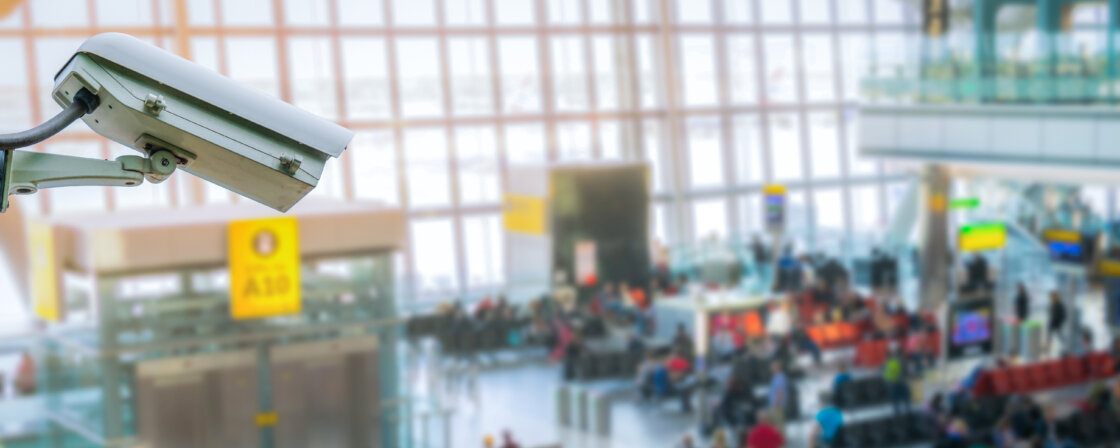A biometric camera system has been in operation at Prague Airport since 2018, which can recognize faces in real time and then link them to police databases. At the same time, the footage is stored for 30 days after it is recorded, so the system can be used retrospectively.
Already at the time of introduction, questions have been raised about invasion of passenger privacy and compliance with the EU’s General Data Protection Regulation, or GDPR. Specifically, there were issues such as the digital rights organisation IuRe. It filed a complaint with the Data Protection Authority, pointing out the inconsistency of the airport CCTV system with the EU Data Protection Enforcement Directive, which states that biometric data can only be processed in strictly necessary cases, where there are appropriate safeguards for the rights and freedoms of the data subject and where this is permitted by Union or Member State law.
IuRe commented on the issue: ‘A general authorisation to monitor public areas or a general authorisation to process personal data is insufficient as a legal basis for similar CCTV systems with advanced features. Czech legislation does not explicitly provide for the police to process biometric information in connection with the operation of camera systems with facial recognition functions.”
This year reports the strengthening of the system
There are plans to expand the CCTV system this year. Specifically, additional cameras are to be installed, the switch to a newer version of the software is to be made, and an operator and monitoring station is also to be built. Furthermore, there are plans to expand the network communication infrastructure, create a new computing infrastructure on the Police Cloud and further expand the real-time facial recognition system. It is also planned to extend biometric cameras with face detection to other Czech airports.
Are you solving a similar problem?
Need help with GDPR?
You’ll come across GDPR almost everywhere, and if you run a business, then you have to comply with it yourself. We offer a GDPR audit service for businesses that will ensure your terms and conditions, personal data handling rules and other internal guidelines are in line with the regulation so you don’t get into unnecessary trouble.
I want to help
- When you order, you know what you will get and how much it will cost.
- We handle everything online or in person at one of our 6 offices.
- We handle 8 out of 10 requests within 2 working days.
- We have specialists for every field of law.
How will the camera system affect the new AI Act?
The AI Act is designed to ensure that the use of AI is transparent, safe, traceable, non-discriminatory and environmentally friendly. The Act categorises different types of AI based on the level of potential risk. Biometric identification systems operating remotely and in real time fall into the highest category, i.e. unacceptable risk.
AI in this category is to be banned altogether. However, biometric identification systems are to have an exemption for law enforcement purposes. This means that they will be allowed, but only in a limited number of serious cases with real-time monitoring. In the case of retrospective identification, then only after court approval.
Since the biometric camera system at Václav Havel Airport uses AI for its function, this act will also apply to it. The introduction of the AI Act into local legislation is expected to take place early next year. However, the Home Office’s plans for its implementation have raised questions and concerns about the protection of personal data and basic human rights. This is because the Charter of Fundamental Rights and Freedoms clearly states that “The inviolability of the person and his or her privacy is guaranteed and everyone has the right to protection from unwarranted interference with private and family life.” The question, then, is to what lengths can be gone to in order to ensure security at the expense of our privacy.
We can take at least some comfort from a recent case that dealt with the use of highway camera footage to determine whether tax evasion was taking place. In that case, the Constitutional Court overturned the decision of the Supreme Administrative Court and suggested that we consider whether providing police records to another authority violated constitutional rights. Indeed, interference with a person’s privacy should only be done in extreme cases when there is no other option.
Beware of the Chinese scenario
The Data Protection Authority (DPA) warns that this implementation should not lead to a Chinese scenario. China has a system of massive state surveillance of its citizens. The People’s Republic of China not only monitors its citizens using intelligent cameras, but also tracks their movements on the Internet. At present, the number of these cameras amounts to around 700 million, i.e. one camera per two inhabitants.
This monitoring is then directly linked to the Social Credit System, which scores Chinese citizens on the basis of their economic and social behaviour. This means that people are rated on a number of factors – they get negative points for smoking in forbidden places or spending too much time playing computer games, for example. They may then be refused a loan, lose the use of certain services, and so on.
The biggest problem with the local airport system is that, according to the proposal for implementation, it should be possible, subject to the approval of the High Court, to monitor not only specific persons but also entire groups of persons suspected of predefined offences. This is unacceptable, according to the OSC, because “the court is to assess the specific purpose of the deployment on a specific person, in a specific place and at a specific time.” At the same time, the Government Commissioner for Human Rights, Klára Šimáčková Laurenčíková , agreed with this statement.
It also speaks for itself that the Police of the Czech Republic won the Big Brother award in the category of official stalker for “non-transparent operation of the Digital Personal Image system”.
Indeed, the proposal to implement the EU Act on Artificial Intelligence into local legislation raises many questions about our privacy. And for many people it makes us feel like we are slowly slipping into the role of Will Smith in Enemy of the State. However, it should be borne in mind that this system is, for the time being, limited to Prague airport only and the final legislation has not yet been made official. Only time will tell how the whole issue will develop.




